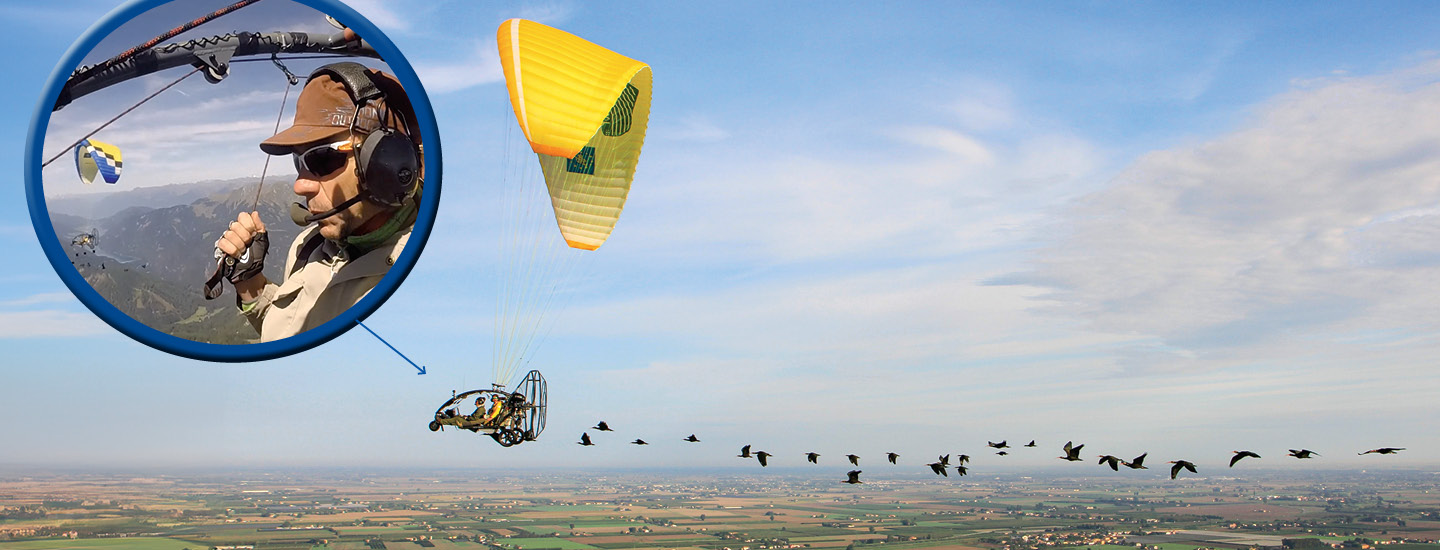Johannes Fritz needed to come up with a plan if he was going to prevent his rare and beloved birds from going extinct.
To survive the European winter, the northern bald ibis—which had once disappeared entirely from the wild on the continent—needs to migrate south, over the Alps, before the mountains become impassable. But shifting climate patterns have delayed when the birds begin to migrate, and they’re now reaching the mountains too late to make it over the peaks, locking them in an icy death trap.
“Two or three years, and they’d be extinct again” in the wild, says Fritz, an Austrian biologist.
Determined to save them, Fritz decided he would teach the birds a new, safer migration route by guiding them himself in a tiny aircraft. He’s confident he can succeed in this daring plan—because he’s done it before.
When Fritz was born 56 years ago in western Austria, the northern bald ibis, a black bird with a bald head and large beak, could be found in Europe only in captivity. Some 400 years ago, Europeans likely devoured the last of the wild ones.
Johannes Fritz needed to come up with a plan if he was going to prevent his rare and beloved birds from becoming extinct.
The northern bald ibis had once disappeared entirely from the wild in Europe. To survive the winter, ibises need to migrate south. They have to fly over the Alps before the mountains become impassable. But changing climate patterns have delayed when the birds begin to migrate. Now they reach the mountains too late to make it over the peaks. They get caught in an icy death trap.
“Two or three years, and they’d be extinct again” in the wild, says Fritz, an Austrian biologist.
Fritz was determined to save the birds. He decided he would teach them a new, safer migration route. He could guide them himself using a tiny plane. He knows he can succeed because he’s done it before.
Fritz was born 56 years ago in western Austria. At that time the northern bald ibis, a black bird with a bald head and large beak, could be found in Europe only in captivity. Some 400 years ago, Europeans likely ate the last of the wild ones.

